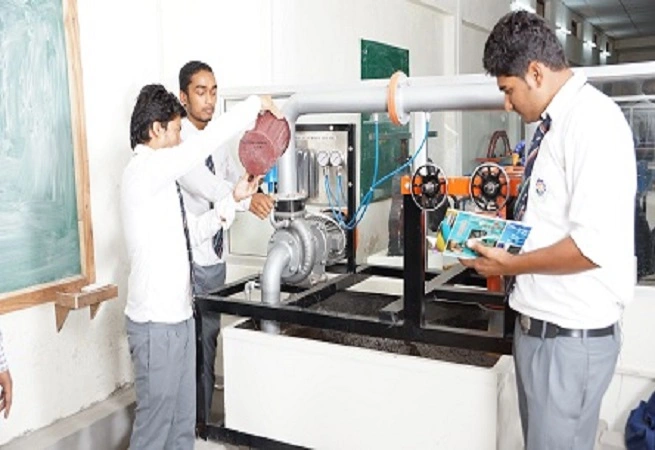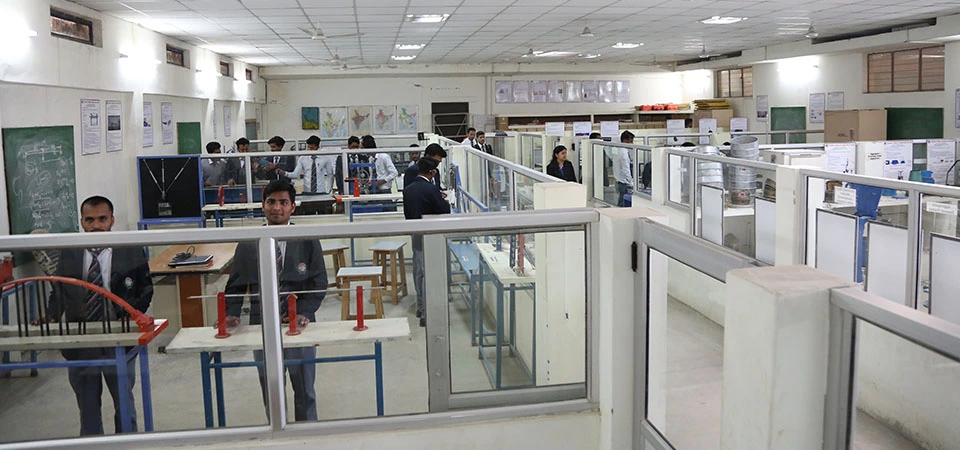
Is civil Engineering a Good Career?
Is civil Engineering a Good Career?
Yes, civil engineering can be a good career choice for individuals who are interested in designing, building, and maintaining the infrastructure that supports communities and societies. Civil engineers work on a wide range of projects, including roads, bridges, buildings, water treatment plants, and other public works. They may also be involved in the design and construction of transportation systems, utilities, and other infrastructure projects.
Civil engineering is a diverse and rewarding field that offers many opportunities for growth and advancement. It is also a field that is in high demand, as there is a constant need for new infrastructure and the maintenance and improvement of existing infrastructure. Civil engineers typically have good job prospects and can expect to earn competitive salaries.
In order to become a civil engineer, individuals typically need to earn a bachelor’s degree in civil engineering or a related field. Some positions may require a master’s degree or additional certifications or licenses. It is also important for civil engineers to stay up-to-date on the latest developments and technologies in the field.
What is the role of Civil Engineer?
A civil engineer is a professional who is trained in the design, construction, and maintenance of the physical and naturally built environment, including public works such as roads, bridges, water and sewage systems, airports, and buildings. Civil engineers work on a wide variety of projects, both small and large, and are involved in all stages of a project, from planning and design to construction and maintenance.
Some specific tasks that civil engineers might be responsible for include:
- Conducting surveys and analyses to determine the feasibility of a project.
- Developing detailed plans and drawings for construction projects.
- Coordinating the work of contractors and other professionals involved in a project.
- Overseeing the construction of projects to ensure that they are built according to plan and meet all relevant codes and regulations.
- Testing materials and monitoring the construction process to ensure quality control.
- Providing technical support and guidance to clients, contractors, and other professionals.
- Managing budgets and schedules to ensure that projects are completed on time and within budget.
- Maintaining and repairing existing infrastructure.
Civil engineers often specialize in a particular area, such as transportation, water resources, or structural engineering. They may also work in a variety of settings, including government agencies, consulting firms, and private industry.
How to become a Civil Engineer?
To become a civil engineer, you will typically need to complete a bachelor’s degree in civil engineering or a related field. Many universities offer programs in civil engineering, and these programs usually take four years to complete. Some universities may also offer combined bachelor’s and master’s degree programs that allow students to earn both degrees in five years.

To be admitted to a civil engineering program, you will typically need to have a strong background in math and science, and you may need to take certain prerequisite courses before beginning your studies. In addition to coursework, you may also be required to complete hands-on laboratory and fieldwork as part of your program.
Once you have completed your bachelor’s degree, you will need to pass the Fundamentals of Engineering (FE) exam in order to become a licensed engineer. This exam is typically taken after completing a degree program, but before beginning work as a professional engineer. After gaining some work experience, you may also choose to pursue additional certification, such as becoming a Certified Professional Engineer (PE), which typically requires passing a more advanced exam and meeting additional requirements.
In addition to formal education and certification, it is also important for civil engineers to stay up-to-date with developments in their field and to continually improve their skills and knowledge. This may involve participating in professional development courses, attending conferences and seminars, or staying abreast of new technologies and techniques through reading and research.
Career Opportunities For Civil Engineers
Civil engineers have a wide range of career opportunities available to them, as they are trained to work on a variety of projects in the public and private sector. Some common career paths for civil engineers include:
1. Transportation Engineering: Civil engineers who specialize in transportation engineering design and oversee the construction of roads, bridges, airports, and other transportation systems.
2. Structural Engineering: Civil engineers who specialize in structural engineering design and analyze the strength and stability of structures, such as buildings, bridges, and tunnels.
3. Environmental Engineering: Civil engineers who specialize in environmental engineering work to protect and improve the natural environment, including designing systems for waste management and water treatment.
4. Water resources Engineering: Civil engineers who specialize in water resources engineering work to manage the use, development, and protection of water resources, including designing systems for irrigation, flood control, and water supply.
5. Geotechnical Engineering: Civil engineers who specialize in geotechnical engineering study the properties of soil and rock and their behavior under different conditions, and use this knowledge to design foundations and other structures.
In addition to these specialized areas, civil engineers may also work in consulting, construction management, or research and development. Civil engineers may also work for government agencies, consulting firms, or private companies, and may have the opportunity to work on projects both nationally and internationally.
What are the skills and qualities required to become a Civil Engineer?
To become a successful civil engineer, you will need to have a strong foundation in math and science, as well as a range of other skills and qualities. Some specific skills and qualities that may be helpful for civil engineers to have include:
1. Problem-solving skills: Civil engineers must be able to identify and solve complex problems, often involving multiple variables and constraints.
2. Analytical skills: Civil engineers must be able to analyze data and information, and use this information to make informed decisions and design solutions.
3. Communication skills: Civil engineers must be able to communicate effectively with a variety of audiences, including clients, contractors, and other professionals.
4. Interpersonal skills: Civil engineers must be able to work effectively in teams and collaborate with others to achieve common goals.
5. Leadership skills: Civil Engg. may be responsible for managing teams and overseeing the work of others, so leadership skills are important.
6. Attention to detail: Civil Engg. must be able to pay close attention to detail and ensure that their work is accurate and meets all relevant codes and regulations.
7. Creativity: Civil Engg. must be able to think creatively and come up with innovative solutions to complex problems.
8. Adaptability: Civil engineers must be able to adapt to new technologies and techniques and be willing to learn and grow throughout their careers.
9. Time management skills: Civil engineers must be able to manage their time effectively and meet deadlines in a fast-paced and often unpredictable work environment.
10. Physical stamina: Civil engineers may be required to work in a variety of environments and may need to be able to tolerate being on their feet for long periods of time and working in physically demanding conditions.
I hope you learn some new from this post. If you have any other query please comment below. We will trying to help you.






